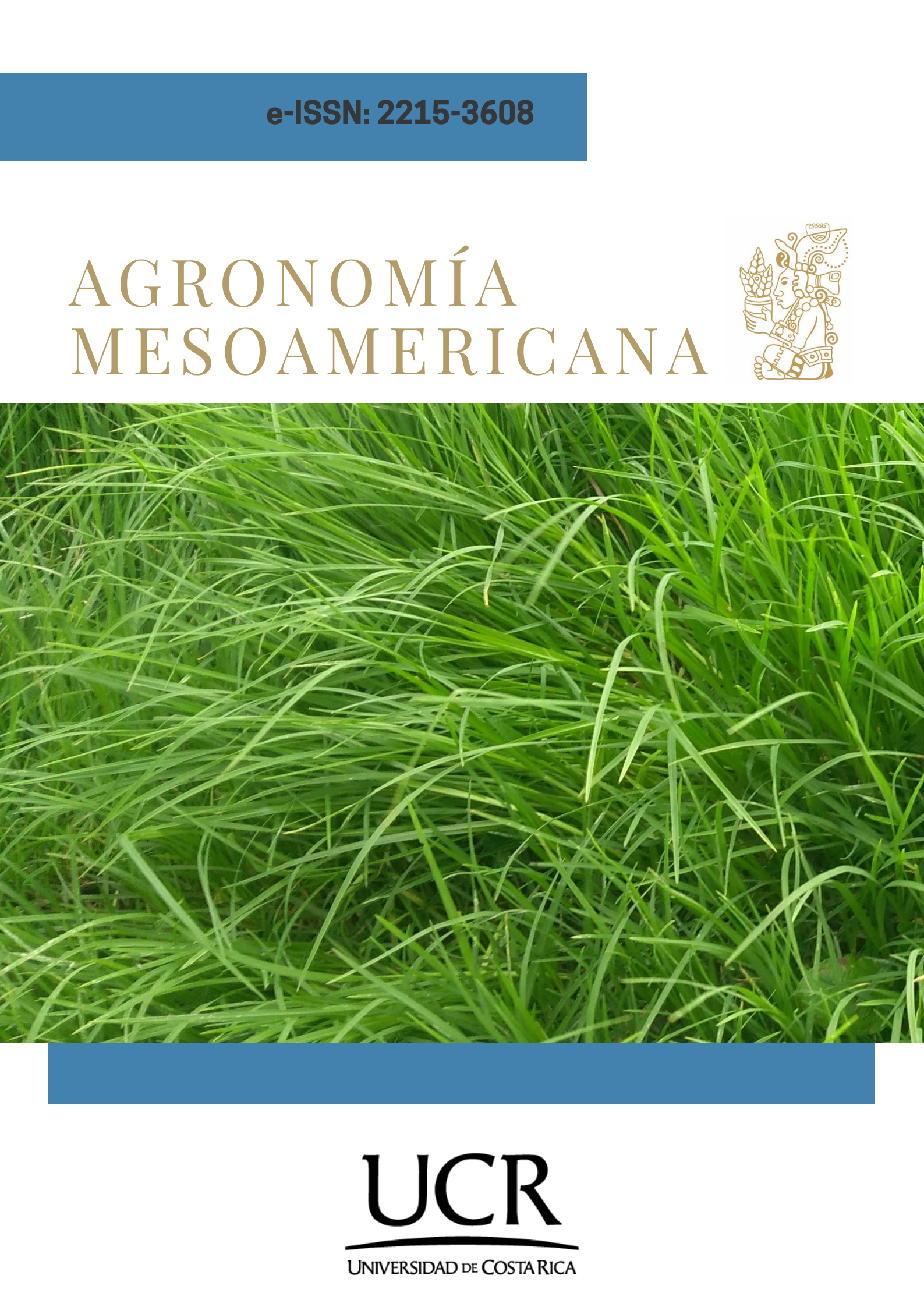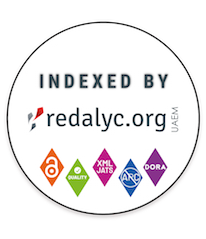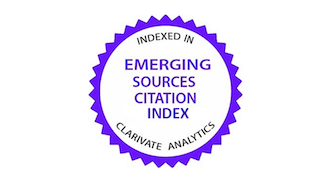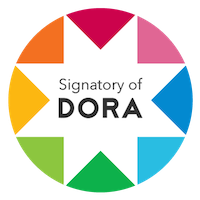Factors that affect the quality of Kikuyu grass (Cenchrus clandestinus) silage
DOI:
https://doi.org/10.15517/am.2023.53394Keywords:
fodder conservation, digestibility, glycerin, regrowth, air dryingAbstract
Introduction. The availability of Kikuyu grass silage helps reduce the seasonality of dairy production, but it is necessary to evaluate the factors affecting the ensiling process to maintain a quality similar to that of fresh forage. Objective. To evaluate the effect of regrowth age, chop size, wilting time with the use of additives on the quality of Kikuyu grass silage. Materials and methods. The study was conducted in Mosquera, Colombia, during 2020. The effect of regrowth age (28, 42, and 70 days), chop size (1.5 cm, 3.0 cm and whole plant), wilting time (0 and 6 hours), and the use of additives (crude glycerin and lactic acid bacteria (LAB)) on parameters such as chemical composition, in situ dry matter digestibility (ISDMD), pH dynamics, volatile fatty acid (VFA) profile, dry matter losses, and organoleptic quality was evaluated. The data was analyzed using a completely randomized design with a factorial arrangement. Results. The use of 70-day regrowth Kikuyu grass reduced (p<0.05) crude protein, digestibility, and energy, while increasing cell wall content and dry matter (DM) of the silage. Additive use reduced (p<0.05) the final pH of mature grass. Small chop size or inclusion of crude glycerin in the whole plant increased (p<0.05) ISDMD. Additive use reduced (p<0.05) the final pH of silage made with the whole plant. Pre-ensiling wilting increased (p<0.05) the DM and final pH, but reduced (p<0.05) crude protein and lactic acid. Conclusion. The use of tender forage, small chop size, and fresh bagging improved the quality of Kikuyu grass silage. The use of mature forage requires the application of additives.
Downloads
References
Acero-Camelo, A., Molina, E., Parra-Coronado, A., Fischer, G., & Carulla-Fornaguera, J. E. (2021). Base growth temperature and phyllochron for kikuyu grass (Cenchrus clandestinus; Poaceae). Acta Biologica Colombiana, 26(2), 160–169. http://doi.org/10.15446/abc.v26n2.83199
Acero-Camelo, A., Pabón, M. L., Fischer, G., & Carulla-Fornaguera, J. E. (2020). Optimum harvest time for Kikuyu grass (Cenchrus clandestinus) according to the number of leaves per tiller and nitrogen fertilization. Revista Facultad Nacional de Agronomía Medellín, 73(3), 9243–9253. https://doi.org/10.15446/rfnam.v73n3.82257
Ariza-Nieto, C., Mayorga, O. L., Mojica, B., Parra, D., & Afanador-Tellez, G. (2017). Use of LOCAL algorithm with near infrared spectroscopy in forage resources for grazing systems in Colombia. Journal of Near Infrared Spectroscopy, 26(1), 44–52. https://doi.org/10.1177/0967033517746900
Auerbach, H., & Nadeau, E. (2020). Effects of additive type on fermentation and aerobic stability and its interaction with air exposure on silage nutritive value. Agronomy, 10(9), Article 1229. https://doi.org/10.3390/agronomy10091229
Avellaneda Avellaneda, Y., Muñoz Mancupe, E. A., Vargas Martínez, J. de J. (2020). Efecto de la edad de rebrote sobre el desarrollo morfológico y la composición química del pasto kikuyo (Cenchrus clandestinus) en el trópico alto colombiano. CES Medicina Veterinaria y Zootecnia, 15(2), 23–37. https://doi.org/10.21615/cesmvz.15.2.2
Bensimon Gomes, M. A., Vanini de Moraes, G., Cabreira Jobim, C., Carlesso dos Santos, T., Martins Oliveira, T., & Rossi, R. M. (2015). Nutritional composition and ruminal degradability of corn silage (Zea mays L.) with addition of glycerin in silage. Semina: Ciências Agrárias, 36(3 Suppl. 1), 2079–2091. https://doi.org/10.5433/1679-0359.2015v36n3Supl1p2079
Bijelić, Z., Tomić, Z., Ružić-Muslić, D., Krnjaja, V., Mandić, V., Petričević, M., & Caro-Petrović. V. (2015). Silage fermentation characteristics of grass-legume mixtures harvested at two different maturity stages. Biotechnology in Animal Husbandry, 31(2), 303–311. https://doi.org/10.2298/BAH1502303B
Boschini-Figueroa, C., & Pineda-Cordero, L. (2016). Ensilaje de kikuyo (Pennisetu clandestinum o kikuyucloa clandestina) fermentado con tres aditivos. Agronomía Mesoamericana, 27(1), 49–60. https://doi.org/10.15517/am.v27i1.21877
Bravo Parra, A. M. (2021). Cadenas sostenibles ante un clima cambiante. La ganadería en Colombia. Deutsche Gesellschaft für Internationale Zusammenarbeit. https://cgspace.cgiar.org/handle/10568/114751
Brüning, D., Gerlach, K., Weiß, K., & Südekum, K. -H. (2018). Effect of compaction, delayed sealing and aerobic exposure on maize silage quality and on formation of volatile organic compounds. Grass and Forage Science, 73(1), 53–66. https://doi.org/10.1111/gfs.12288
Campuzano-Duque, L. F., Castro-Rincón, E., Castillo-Sierra, J., Torres-Cuesta, D., Nieto-Sierra, D., & Portillo-López, P. (2022). Rendimiento e inclusión de ensilaje de avena forrajera (Avena sativa L.) AV25 en dietas para ganado lechero (Bos primigenius Taurus). Agronomía Mesoamericana, 33(1), Artículo 44508. http://doi.org/10.15517/am.v33i1.44508
Castle, M. E., Retter, W. C., & Watson, J. N. (1979). Silage and milk production: comparisons between grass silage of three different chop lengths. Grass and Forage Science, 34(4), 293–301. https://doi.org/10.1111/j.1365-2494.1979.tb01481.x
Correa, H. J., Pabón, M. L., & Carulla, J. E. (2008). Valor nutricional del pasto kikuyo (Pennisetum clandestinum Hoechst Ex Chiov) para la producción de leche en Colombia (una revisión): I - Composición química y digestibilidad ruminal y posruminal. Livestock and Research for Rural Development, 20(4), Artículo 59. http://www.lrrd.org/lrrd20/4/corra20059.htm
Crook, T., Stewart, B., Sims, M., Weiss, C., Coffey, K., Coblentz, W., & Beck, P. (2020). The effects of moisture at baling and wrapping delay on storage characteristics of annual ryegrass round bale silage. Crop Forage & Turfgrass Management, 6(1), Article e20015. https://doi.org/10.1002/cft2.20015
Elmenhorst, F. W., & Parchim, C. S. (2008). Correcting the dry matter content of grass silages as a substrate for biogas production. Landtechnik, 63, 82–83. https://www.landtechnik-online.eu/landtechnik/article/download/2008-63-2-082-083/2008-63-2-082-083-en-pdf/
Escobar Charry, M. A., Cárdenas Rocha, E. A., & Carulla Fornaguera, J. E. (2020). Effect of altitude and defoliation frequency in the quality and growth of Kikuyu grass (Cenchrus clandestinus). Revista Facultad Nacional de Agronomía, 73(1), 9121–9130. https://doi.org/10.15446/rfnam.v73n1.77330
Ewen, A. (2011). Organic acids in silage: Application note [Brochure]. Agilent Technologies. https://www.agilent.com/cs/library/applications/SI-1945.pdf
Federación Colombiana de Ganaderos. (2018, noviembre 29). Ganadería colombiana: Hoja de ruta 2018-2022. https://www.fedegan.org.co/noticias/ganaderia-colombiana-hoja-de-ruta-2018-2022
Heeren, J. A. H., Podesta, S. C., Hatew, B., Klop, G., van Laar, H., Bannink, A., Warner, D., de Jonge, L. H., & Dijkstra, J. (2014). Rumen degradation characteristics of ryegrass herbage and ryegrass silage are affected by interactions between stage of maturity and nitrogen fertilisation rate. Animal Production Science, 54(9), 1263–1267. https://doi.org/10.1071/AN14259
Huhtanen, P., Jaakkola, S., & Nousiainen, J. (2013). An overview of silage research in Finland: from ensiling innovation to advances in dairy cow feeding. Agricultural Food Science, 22(1), 35–56. https://doi.org/10.23986/afsci.6632
Instituto Colombiano Agropecuario. (1992). Fertilización en diversos cultivos (5ª aproximación, Manual de Asistencia Técnica No. 25). PRODUMEDIOS. https://repository.agrosavia.co/bitstream/handle/20.500.12324/14124/27733_16902.pdf?sequence=1&isAllowed=y
Kass, M., Olt, A., Kaldmae, H., Kokk, K., Songisepp, E., & Ots, M. (2012, July 2-4). Effects of crude glycerol addition on silage fermentation [Conference presentation] XVI International Silage Conference, Hameenlinna, Finland.
Kiš, G., Grbesa, D., Kostelic, A., & Karolyi, D. (2005). Estimating grass and grass silage degradation characteristics by in situ and in vitro gas production methods. Italian Journal of Animal Science, 4(3), 142–144. https://doi.org/10.4081/ijas.2005.3s.142
Kung Jr, L., Shaver, R. D., Grant, R. J., & Schmidt, R. J. (2018). Silage review: Interpretation of chemical, microbial, and organoleptic components of silages. Journal of Dairy Science, 101(5), 4020–4033. https://doi.org/10.3168/jds.2017-13909
Li, Y., Du, S., Sun, L., Cheng, Q., Hao, J., Lu, Q., Ge, G., Wang, Z., & Jia, Y. (2022). Effects of lactic acid bacteria and molasses additives on dynamic fermentation quality and microbial community of native grass silage. Frontiers of Microbiology, 13, Article 830121. https://doi.org/10.3389/fmicb.2022.830121
Luo, R., Zhang, Y., Wang, F., Liu, K., Huang, G., Zheng, N., & Wang, J. (2021). Effects of sugar cane molasses addition on the fermentation quality, microbial community and tastes of alfalfa silage. Animals, 11(2), Article 355. https://doi.org/10.3390/ani11020355
Lyimo, B. J., Mtengeti, E. J., Urio, N. A., & Demanisho, E. N. (2018). Effect of wilting, chopping length and different levels of maize bran on grass silage quality. Livestock Research for Rural Development, 30(6), Article 112. http://www.lrrd.org/lrrd30/6/bmwa30112.html
Mancipe-Muñoz, E. A., Castillo-Sierra, J., Vargas-Martínez, J. de J., & Avellaneda-Avellaneda Y. (2022). Calidad composicional del ensilaje de tres cultivares de maíz (Zea mays) del trópico alto colombiano. Agronomía Mesoamericana, 33(2), Artículo 46412. http://doi.org/10.15517/am.v33i2.46412
Martinez-Fernandez, A., Soldado, A., de la Roza-Delgado, B., Vicente, F., Gonzalez-Arrojo, M. A., & Argamenteria, A. (2013). Modelling a quantitative ensilability index adapted to forages from wet temperate areas. Spanish Journal of Agricultural Research, 11(2), 455–462. https://doi.org/10.5424/sjar/2013112-3219
McDonald, P., Henderson, A. R., & Heron, S. J. E. (1991). The biochemistry of silage (2nd ed.). Chalcombe Publications.
Mejía-Taborda, A. C., Ochoa-Ochoa, R., & Medina-Sierra, M. (2014). Effect of different doses of compound fertilizer on the quality of kikuyu grass (Pennisetum cladestinum Hochst. Ex Chiov.). Pastos y Forrajes, 37(1), 31–37. https://payfo.ihatuey.cu/index.php?journal=pasto&page=article&op=view&path%5B%5D=1780
Mills, J. A., & Kung Jr, L. (2002). The effect of delayed ensiling and application of a propionic acid-based additive on the fermentation of barley silage. Journal of Dairy Science, 85(8), 1969–1975. https://doi.org/10.3168/jds.S0022-0302(02)74273-2
Moloney, T., Sheridan, H., Grant, J., O’Riordan, E. G., & O’Kiely, P. (2021). Conservation efficiency and nutritive value of silages made from grass-red clover and multi-species swards compared with grass monocultures. Irish Journal of Agricultural and Food Research, 59(1), 150–166. https://doi.org/10.15212/ijafr-2020-0110
Neumann, M., Frenzel Mühlbach, P. R., Laerte Nörnberg, J., Restle, J., & Ost, P. R. (2007). Effect of particle size and cutting height of corn (Zea mays L.) on losses of silages during the fermentation process and utilization period. Revista Brasileira de Zootecnia, 36(5), 1395–1405. https://doi.org/10.1590/S1516-35982007000600024
Ojeda, F., Caceres, O., & Matamorros, M. (1991). Conservación de forrajes. Editorial Pueblo y Educación.
Oliveira, A. S., Weinberg, Z. G., Ogunade, I. M., Cervantes, A. A. P., Arriola, K. G., Jiang, Y., Kim, D., Li, X., Gonçalves, M. C. M., Vyas, D., & Adesogan, A. T. (2017). Meta-analysis of ffects of inoculation with homofermentative and facultative heterofermentative lactic acid bacteria on silage fermentation, aerobic stability, and the performance of dairy cows. Journal of Dairy Science, 100(6), 4587–4603. https://doi.org/10.3168/jds.2016-11815
Ørskov, E. R., & McDonald, I. (1979). The estimation of protein degradability in the rumen from incubation measurements weighted according to rate of passage. The Journal of Agriculture Science, 92(2), 492–503. https://doi.org/10.1017/S0021859600063048
Perčulija, G., Vranić, M., Kutnjak, H., & Leto, J. (2011). In sacco dry matter and NDF degradability of grass silage harvested at three stages of maturity. Bulletin UASVM Animal Science and Biotechnologies, 68(1–2), 58–62. https://journals.usamvcluj.ro/index.php/zootehnie/article/view/6668
Pereira Santos, W., Ferreira Carvalho, B., Silva Ávila, C. L., Dias Júnior, G. S., Neves Pereira, M., & Freitas Schwan, R. (2015). Glycerin as an additive for sugarcane silage. Annals of Microbiology, 65, 1547–1556. https://doi.org/10.1007/s13213-014-0993-x
Piltz, J. W., Meyer, R. G., Brennan, M. A., & Boschma, S. P. (2022). Fermentation quality of silages produced from wilted sown tropical perennial grass pastures with or without a bacterial inoculant. Agronomy, 12(7), Article 1721. https://doi.org/10.3390/agronomy12071721
Pratti Daniel, J. L., Fernandes Bernardes, T., Cabreira Jobim, C., Schmidt, P., & Nussio, L. G. (2019). Production and utilization of silages in tropical areas with focus on Brazil. Grass Forage Science, 74(2), 188-200. https://doi.org/10.1111/gfs.12417
Renzaho Ntakyo, P., Kirunda, H., Tugume, G., & Natuha, S. (2020). Dry season feeding technologies: Assessing the nutritional and economic benefits of feeding hay and silage to dairy cattle in South-Western Uganda. Open Journal of Animal Sciences, 10(3), 627–648. https://doi.org/10.4236/ojas.2020.103041
Silva Déley, L. M., Acosta Velarde, J. I., Parra Gallardo, G. P., Martínez Freire, M. N., Toro Molina, B. M., Sambache Tayupanta, J. E., Peñafiel Acosta, S. E., & Chacón Marcheco, E. (2019). Forages quality of Cenchrus clandestinum and Lolium perenne forages in the form of hay at different regrowth ages. Cuban Journal of Agricultural Science, 53(3), 299–306. https://www.cjascience.com/index.php/CJAS/article/view/903
Statistical Analysis Systems. (2016). User’s guide (Version 9.4). SAS Institute Inc.
Tayyab, U., Wilkinson, R. G., Charlton, G. L., Reynolds, C. K., & Sinclair, L. A. (2019). Grass silage particle size when fed with or without maize silage alters performance, reticular pH and metabolism of Holstein-Friesian dairy cows. Animal, 13(3), 524–532. https://doi.org/10.1017/S1751731118001568
Tulu, A., Diribsa, M., & Temesgen, W. (2020). Evaluation of seven oat (Avena sativa) genotypes for biomass yield and quality parameters under different locations of Western Oromia, Ethiopia. Advances in Agricultura, 2020, Article 822344. https://doi.org/10.1155/2020/8822344
Unidad de Planeación Rural Agropecuaria. (2021). Plan de ordenamiento productivo. Análisis prospectivo de la cadena láctea bovina colombiana. Ministerio de Agricultura y Desarrollo Rural.
Vargas Martínez, J. de J., Sierra Alarcón, A., M. Mancipe Muñoz, E. A., Avellaneda Avellaneda, Y. (2018). Kikuyo, una gramínea presente en los sistemas de rumiantes en trópico alto colombiano. CES Medicina Veterinaria y Zootecnia, 13(2), 137–156. https://doi.org/10.21615/cesmvz.13.2.4
Villalobos-Villalobos, L., Arce-Cordero, J., & WingChing-Jones, R. (2015). Costos de producción de ensilados de pastos tropicales elaborados en lecherías de Costa Rica. Nutrición Animal Tropical, 9(2), 27–48. https://doi.org/10.15517/NAT.V9I2.21462
Watte Schwingel, A., Fernandes, T., Previdelli Orrico Junior, M. A., Amorim Orrico, A. C., de Lucas Junior, J., Andrade Reis, R., & Omizolo de Souza, R. (2020). The quality of crude glycerine influences the fermentation and nutritive value of Piatã grass silage. Revista Brasileira de Zootecnia, 49, Article e20200114. https://doi.org/10.37496/rbz4920200114
Weiss, K., Kroschewski, B., & Auerbach, H. (2016). Effects of air exposure, temperature and additives on fermentation characteristics, yeast count, aerobic stability and volatile organic compounds in corn silage. Journal of Dairy Science, 99(10), 8053–8069. https://doi.org/10.3168/jds.2015-10323
Wilkinson, J. M., Bolsen, K. K., & Lin, C. J. (2003). History of silage. In D.R. Buxton, R. E. Muck, & H. J. Harrison (Eds). Silage science and technology (Agronomy Series No. 42, pp. 1–30). American Society of Agronomy, Inc., Crop Science Society of America, Inc., & Soil Science Society of America, Inc.

Downloads
Additional Files
Published
How to Cite
Issue
Section
License
Copyright (c) 2023 Yesid Avellaneda-Avellaneda, Javier Castillo-Sierra, Edgar A. Mancipe-Muñoz, Juan de J Vargas-Martínez

This work is licensed under a Creative Commons Attribution-NonCommercial-NoDerivatives 4.0 International License.
1. Proposed policy for open access journals
Authors who publish in this journal accept the following conditions:
a. Authors retain the copyright and assign to the journal the right to the first publication, with the work registered under the attribution, non-commercial and no-derivative license from Creative Commons, which allows third parties to use what has been published as long as they mention the authorship of the work and upon first publication in this journal, the work may not be used for commercial purposes and the publications may not be used to remix, transform or create another work.
b. Authors may enter into additional independent contractual arrangements for the non-exclusive distribution of the version of the article published in this journal (e.g., including it in an institutional repository or publishing it in a book) provided that they clearly indicate that the work was first published in this journal.
c. Authors are permitted and encouraged to publish their work on the Internet (e.g. on institutional or personal pages) before and during the review and publication process, as it may lead to productive exchanges and faster and wider dissemination of published work (see The Effect of Open Access).



























